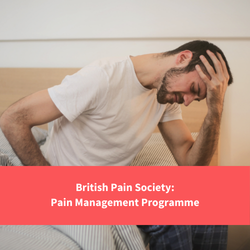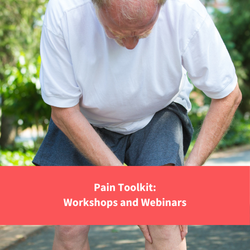Pain Management
You may be dealing with pain while you’re waiting. This could be pain that comes and goes, or that’s there all the time. This can affect how you’re feeling. It may also limit what you can do to support your health and wellbeing.
Top Tips
Whether your pain is new or something you've lived with for years, here are some tried-and-tested self-help steps can bring you relief:
- Gentle Exercise
Simple, everyday activities like walking, swimming, gardening and dancing can ease some of the pain directly by blocking pain signals to the brain.
Activity also helps lessen pain by stretching stiff and tense muscles, ligaments and joints.
It's natural to be hesitant if exercise is painful and you're worried about doing more damage. But if you become more active gradually, it's unlikely you'll cause any damage or harm.
The pain you feel when you start gentle exercise is because the muscles and joints are getting fitter.
- Sleep Well
Many people with long-term pain find it difficult to sleep at night. But it's important to try to stick to a normal sleep routine so you've got the best chance of sleeping through the night.
Sleep deprivation can also make pain worse. Go to bed at the same time each evening and get up at a regular time in the morning and avoid taking naps in the day. If sleep problems persist, see a GP.
- Take a Course
Self-management courses are free NHS-based training programmes for people who live with long-term chronic conditions such as arthritis and diabetes to develop new skills to manage their condition (and any related pain) better on a day-to-day basis.
Many people who have been on a self-management course say they take fewer painkillers afterwards. Some of the best examples are:


- Keep In Touch
Do not let pain mean that you lose contact with people.
Keeping in touch with friends and family is good for your health and can help you feel much better. Try shorter visits, maybe more often, and if you cannot get out to visit people, phone a friend, invite a family member round for tea or have a chat with your neighbour.
Aim to talk about anything other than your pain, even if other people want to talk about it.
- Relax
Practising relaxation techniques regularly can help to reduce persistent pain.
There are many types of relaxation techniques, varying from breathing exercises to types of meditation.
Relaxation techniques like meditation can reduce persistent pain:
RCHT Pain Services Team
Unlock a better quality of life with "Your Guide to Pain Management," crafted by the Pain Services Team. This booklet will show you how Cornwall Health Services' evidence-based treatments can help you effectively manage persistent pain and live more comfortably.
Pain Café
Chronic pain in Cornwall is a group of people who are passionate about improving the lives of people who live with pain. Chronic Pain in Cornwall team are creating a network of Pain Cafés across Cornwall to support you in your journey to a better quality of life. If you would prefer support online, there is an online Pain Café on the Last Thursday of each month and is open to all.
Find out more about Cornwall Connected by Pain and find your local Pain Café

